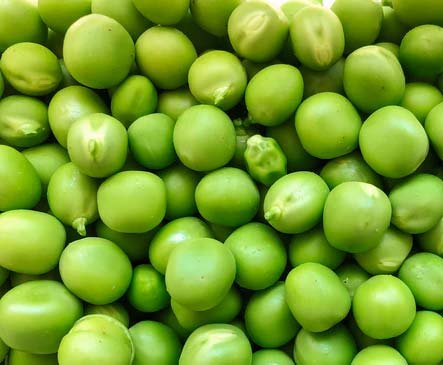Consuming the appropriate amount of protein has been of critical importance for athletes to meet their nutritional needs. However, the quality of the protein consumed also plays an important role. In general, protein quality is measured by the PDCAAS, which rates the essential amino acid (EAA) contents and the digestibility of a protein.
For athletes, a high-quality protein is one which possesses all of the EAA and contains a sufficient amount of the branched chain amino acid (BCAA) leucine. Leucine helps to slow the degradation of muscle tissue and increases the synthesis of muscle proteins.[1]
Choosing the right protein supplement can be a daunting task, especially if we always had in mind that plant based proteins were considered inferior to their animal based counterparts.
Not every athlete is able or willing to consume whey. Athletes adhering to a plant-based diet or those who have dietary restrictions or allergies often turn to soy or other plant proteins as a substitute for whey.
What is pea protein?
Pea protein is a type of plant based protein extracted from the yellow and green split peas. It can be used as a supplement to increase our protein intake, or as a substitute for other food products.
Pea protein is a good protein alternative due to its high nutritional value, low allergenicity, and availability.[2] It is also a more environmentally friendly source of protein.[3]
Pea protein contains 8 of the 9 essential amino acids in sufficient quantities : leucine, lysine,histidine, isoleucine, phenylamine, threonine, tryptophan, and valine. It’s not considered a complete protein because it is relatively low in methionine.[4] Some pea protein supplements may add other ingredients to complement the amino acid quantities .
Pea protein contains important vitamins and minerals and is low in fat.[5]
What is Whey Protein?
Whey protein is a protein a mixture isolated from whey, the liquid by-product of cheese production. It contains α-lactalbumin, β-lactoglobulin, serum albumin and immunoglobulins.[6]
Whey protein has been shown to be a slightly better muscle growth supplement compared to other types of proteins, such as casein or soy.[7]
Whey protein contains high levels of all the essential amino acids and branched-chain amino acids, it also has the highest content of cysteine. Whey protein provides amino acids used to aid in muscle recovery.[9 ] [8 ]
There are three types of whey protein:
- Whey concentrate– contains 29–89% protein by weight
- Whey isolate– contains 90%+ protein by weight
- Whey hydrolysate– It is enzymatically predigested and has the highest rate of digestion of all protein types but is generally more expensive
Because of its high leucine content, rapid digestibility, and its ability to increase the synthesis of muscle proteins, whey protein is a common choice for protein supplementation.
Pea protein Benefits
- Plant based
- High nutritional value
- Low allergenicity
- Contains important vitamins and minerals
- Environmentally friendly
Whey protein Benefits
- Complete Protein
- Highest rate of digestion of all protein types
- It increases the release of anabolic hormones that can stimulate muscle growth
- It’s high in the amino acid leucine, which is known to stimulate muscle protein synthesis
- Improves Satiety
Pea vs Whey
Plant based proteins have lower PDCAAS values, a recent study demonstrated that whey protein supplementation produced significantly larger gains in lean body mass compared with soy [10].
Based on results like this, the search for other protein sources which might compare to whey continue to spark interest.
Pea protein has produced similar increases in muscular size and strength compared to a whey supplement in a focused study. [11]
A study that focused on athletes previously trained in High-Intensity Functional Training (HIFT), showed that no significant differences were observed between the pea protein group and the whey protein groups following the 8-week test period.[12]
The study used supplements with closely matched leucine contents, whey protein contained 2.2 g per dose, and the pea protein supplement contained 2.1 g per dose. Even if there are digestibility differences between the supplements, leucine similarities may explain why no differences between the groups were seen [13]
Bottom Line
Even if pea protein has a lower PDCAAS value and lower digestibility , its leucine content might make pea protein an appropriate whey protein substitute for those athletes whose dietary preferences or allergies don’t allow them to consume more conventional sources of protein.
